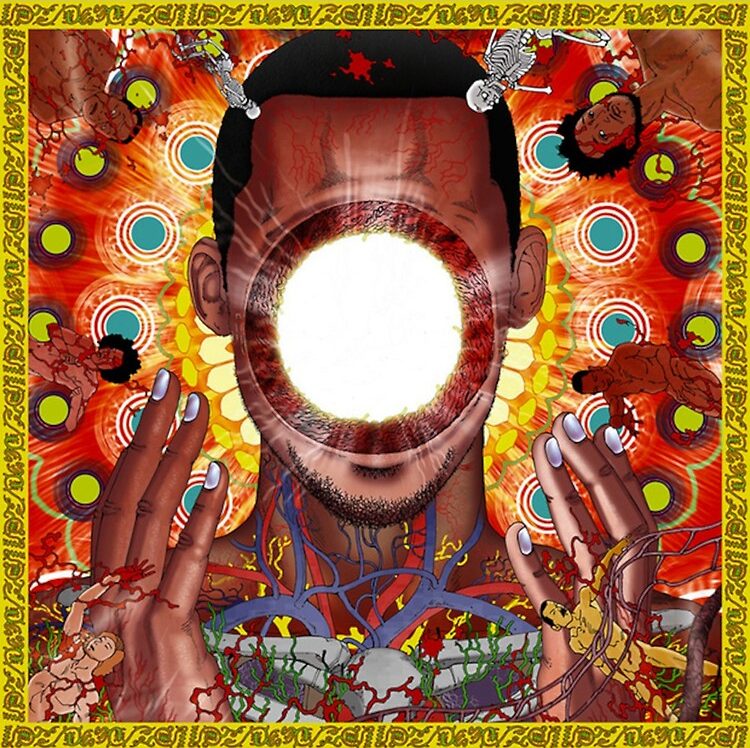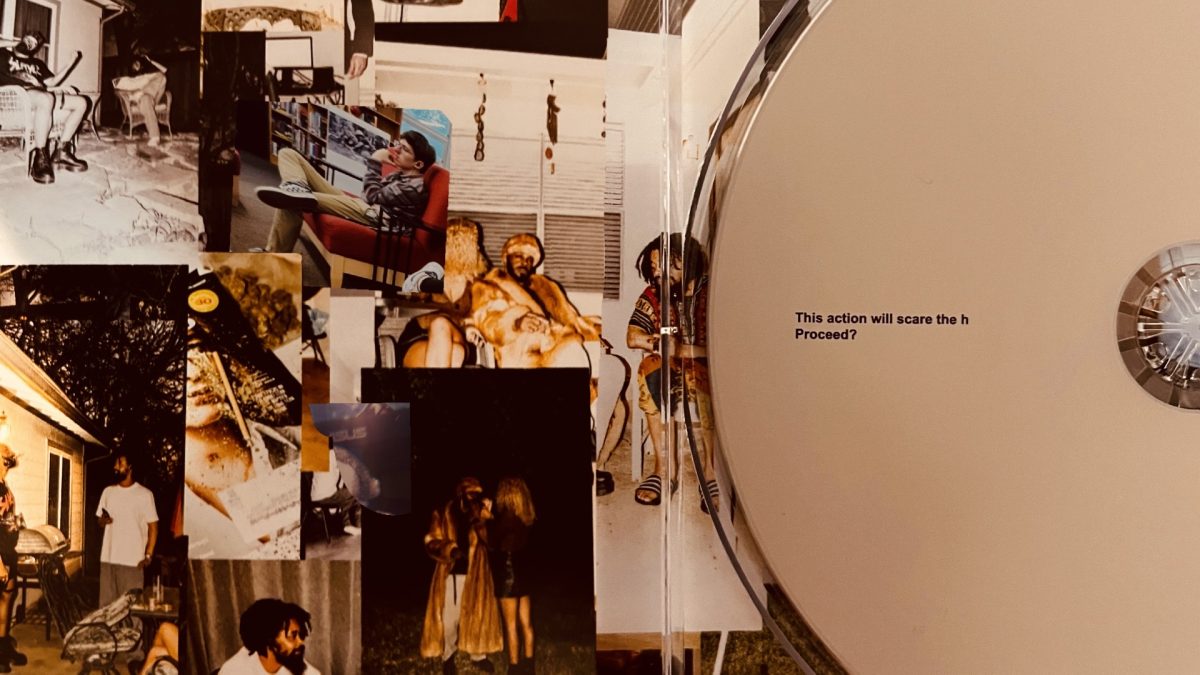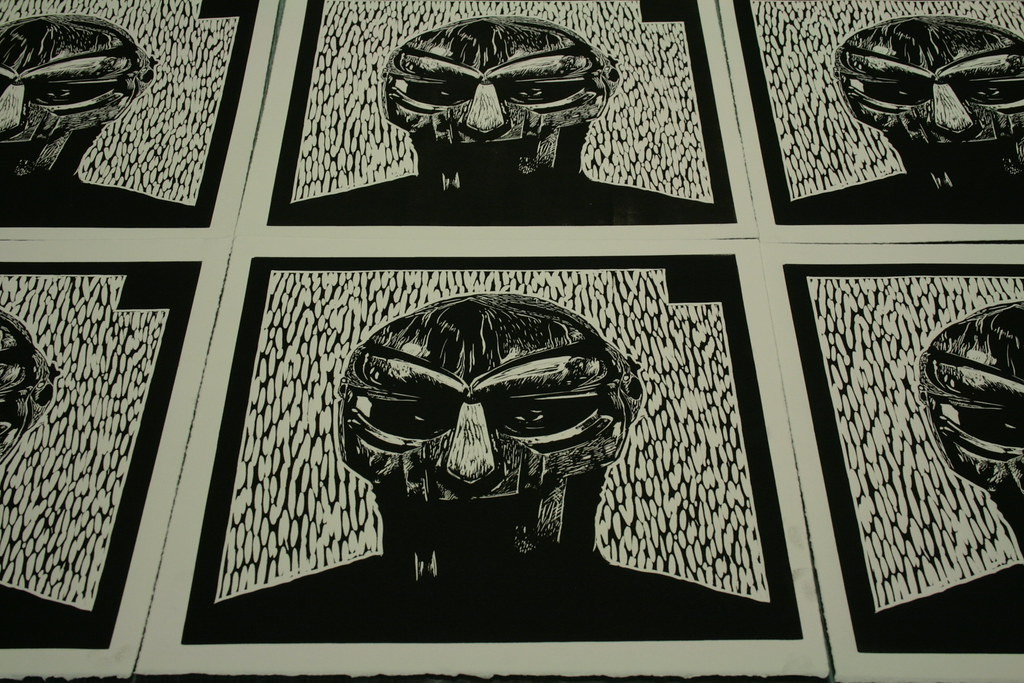Flying Lotus ascends to new levels.
One of the most forward-thinking producers in the 21st century saw his magmaopus release of “You’re Dead!” in 2014. The artist behind this album, Flying Lotus (also known as FlyLo), is a producer and DJ from Los Angeles who typically finds himself in psychedelic, jazz-infused production with rare rap verses from his alias, “Captain Murphy.” “You’re Dead!” is the producer’s fifth studio album and sees the artist take a deeper plunge into his experimental sounds from past albums like “Cosmogramma.”

These past projects had proven his ability to make beautiful off-the-wall productions and were the foundation for growth in his talent for future projects. “You’re Dead!” explores existential ideas of death and meaning over psychedelic and technically stylistic sounds that came from instruments that Lotus had not learned until the album’s making. Despite the amateur experience of the instruments Lotus used on the album, it went on to receive critical acclaim from professional reviewers as well as being a favorite for many of his fans. The decade-long gap between the album’s release and today has proven its ability to stand the test of time and its ability to reach new audiences.
Before the album’s first track plays, the album incases its ideas through its beautifully drawn album cover that ingrains itself into the listener’s head with the haunting floating bodies surrounded by the almost god-like figure, leaving many things up in the air interpretation-wise. This whimsical introduction to the album gives us signs of the out-of-body experience we are about to experience and echoes the themes and sounds that will be heard throughout the album.
The album jolts quickly and unpredictably. With a length of 38 minutes and 19 tracks, the album only averages two minutes for each track. FlyLo makes sure to use this limited time wisely in each track. Take the first track “Theme” for example: The sounds that are laid on top of each other are disheveled and create sounds that invoke controlled chaos, coming in and out of the mix, almost as if they swirl around each ear. The sparkly bells and the fat bass showcase a grasp on such an extravagant sound the album goes for. Ideas like these are prevalent throughout the album, giving a distinct sound that is easily recognizable and unique to the album alone.
The instrumentals of the album show a duality in his influences. Heavy inspiration from the likes of new-age rap producers like J Dilla is heard in the vocal-heavy loops of “Coronus, the Terminator.” FlyLo keeps the influence of new age producers by bringing on Grammy-award-winning bassist “Thundercat” with his instantly recognizable funky and psychedelic bass. While his production style tends to lean toward present-day beats, the samples and instrumentation seen throughout take many of its sounds from the 60s and onward. The influences of older 60s and 70s jazz and progressive rock artists like “Yes” -heard through certain instrumentals like the fast and plucky synths in certain parts of “Never Catch Me” and the opening track- and even his great aunt’s husband “John Coltrane” with the jazz-inspired percussion and saxophones of “Stirring” create duality with the more fresh rap sounds it has.
The album encapsulates itself further into its hip-hop aspects and roots with not just experimental rap influences, but the many rap features that enhance the album to levels that weren’t possible before. Despite the strange and awkward nature of the production, FlyLo had found ways to get the biggest features in rap to find chemistry with his instrumentals and rap on the beats. Some of the best and most critically acclaimed rappers of all time like Kendrick Lamar and Snoop Dogg make appearances on the album and breathe more life and energy into the album. Lamar can be heard on “Never Catch Me” and provides a more stripped-back, uncaring voice that later evolves into his signature intense almost furious vocal delivery that goes with the awing instrumentals. Snoop uses his trademark clunky voice on the also clunky “Dead Man’s Tetris.” Other more obscure artists like Angel Deradoorian and the aforementioned Thundercat both provide more supporting roles on their respective songs that blend into the instrumentals and overall elevate their impact on the listener.
Even with little to no lyrical content on many of the tracks, the instrumentals still convey the ideas of the album by its sound. The second half of the album focuses on a more psychedelic almost shoegaze-like atmosphere that is heavenly to listen to. Tracks like “Siren Song” and “Turtles” have mesmerizing chimes and huge aerial percussion. Sound effects like bird chirps on “Turtles” blend into the already aerial atmosphere perfectly and add more personality and substance to the tracks. Such an airy baroscopic sound is only elevated by the vocals from Deradoorian on a couple of the tracks that create a unique atmosphere that FlyLo has created with all his influences and his ideas.
Throughout the album, FlyLo introduces themes of existentialism and blatantly tells us the only thing that’s guaranteed to happen to all of us: death. FlyLo gives us little to no ideas to cope with such an idea, but instead plays into it in a more curious and somewhat comedic manner at times. Lines of FlyLo stating his excitement with doing drugs with the likes of Freddie Mercury and J Dilla show the comedic manner some of the album takes the topic, but most of the other lyrics tell more of a confused and curious side of experiencing death.
Many of the lines describe an afterlife similar to the ones portrayed in modern media with close ties with Christianity and Heaven, but many other lines show FlyLo’s uncertainty about the afterlife. Artists like Lamar -who is well-known for his Christian beliefs- rap about his thoughts on what the afterlife would be like. Even with extensive backgrounds in religion, many ideas throughout the album show that none of the people who worked on the project still couldn’t picture or easily predict what happens after death. These ideas mixed with the eerie extravagant sounds of the album could leave the listener with either more of an ease of dying or giving them existential ideas of the afterlife and the mysterious nature of it.
Overall the album has been one of the most intriguing, ethereal, and well-rounded albums I’ve found this year. Using death and the limited time we all have on this planet as topics for discussion on an album is nothing new, but “You’re Dead’s” ideas of existentialism and death are portrayed in a fashion that leans toward less of a worrying and scared emotion for the inevitable but with a more accepting and realistic portrayal. The heaven-like sounds of the album don’t feel forced by emotion, but by atmosphere. FlyLo isn’t trying to persuade us about how we should feel about death but gives us his idea of what death and the afterlife mean to him.
The execution of the album is near perfect, and the heavenly sound the album goes for is spot on. While I do believe this album overachieves in its potential, there are some issues. It could be said that the tracklisting for the album could be tweaked, and some songs may drag the album and add little new ideas to evolve the album. Some tracks don’t introduce enough new sounds to justify the time they spend, but these are just nitpicking and are overshadowed by the greatness of the overall product of the project.
“You’re Dead!” is more than an album, it’s an experience. The out-of-this-world instrumentals mixed with such heavy topics already set the bar high with the expectations FlyLo had to deal with. These goals for the project are handled with precision so that the end product exceeds any expectations put onto FlyLo and sets the listener on not just some music for them to listen to, but a journey that leads the listener to roads of hard-hitting ideas and instrumentals that will most likely levitate the listener as they move through the album.




